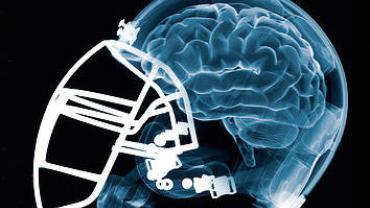
According to a study published in this months Journal of Athletic Training athletes who wait to report a concussion may experience prolonged recovery times. Researchers determined that athletes who delay post-concussion treatment missed close to one more week of activity than those who received immediate treatment.
Athletes who do not receive immediate treatment are at risk for further damage to the brain and will most likely take much longer to recover. Previous research has also supported this theory that intense physical activity during this vulnerable time immediately after a concussion can be detrimental.
This University of Florida study consisted of 97 male and female athletes participating in football basketball lacrosse soccer gymnastics swimming diving volleyball and track and field who were diagnosed with a sport-related concussion between 2008 and 2015. Fifty of the participants did not immediately report their concussion symptoms.
The researchers discovered that athletes who delayed reporting a concussion took an average of five more days to receive medical clearance to return to their activity.
Unfortunately many athletes naively believe that concussion symptoms will go away or they are apprehensive to report a concussion because they do not want to be sidelined. This study demonstrates the obvious: if an athlete waits to report a concussion it will take longer to return to their activity.
Earlier this year I shared a study from the Journal of Pediatrics that examined the effects of post-concussion symptoms on ice hockey players of different ages. It demonstrated that the younger players had a significantly increased risk of prolonged post-concussion symptoms than older players. These findings suggest that adolescents may have longer recoveries from concussions than adults.
Similar results were also seen in a previous study I shared two years ago in The American Journal of Sports Medicine. All of these studies further highlight the significance of concussion in athletes as well as the importance of awareness of this condition.
The traumatic forces involved in concussion and in those with post-concussion syndrome have been shown to result in a decrease of glucose use by the brain and changes in cerebral blood flow.
Medical treatments for post-concussion symptoms have consisted mainly of opiates for headaches antidepressants anti-nausea and anti-vertigo meds stimulants and various other medications to increase neurotransmitter levels.
Nutrient Considerations
Glycerophosphocholine (GPC) is a form of choline that has been shown to help protect and repair damaged brain cells. It has been used to prevent damage to brain cells after blood flow and thus oxygen has been cut off to those cells.
GPC supports the brains ability to recover after traumatic brain injuries and helps reduce the symptoms associated with concussion and post-concussion syndrome. In one particular study twenty-three patients who suffered from concussions and cerebral contusions were given GPC for a three month period. At the end of the study ninety-six percent of the patients mental faculties had improved significantly.
Other brain supportive nutrients to consider include acetyl-l-carnitine inositol phosphatidylserine fish oil krill oil and MCT oil.
By Michael Jurgelewicz DC DACBN DCBCN